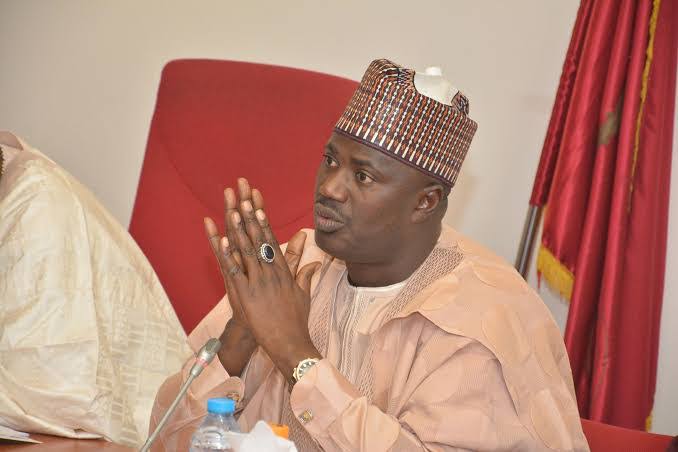578
By Daniel Adaji
The Federal Ministry of Agriculture and Food Security (FMAFS) says it is working to establish 774 soil laboratories across the country to empower grassroots farmers, improve soil health, and boost agricultural productivity.
This was revealed by the Minister of State for Agriculture and Food Security, Dr. Aliyu Abdullahi, during a One-Day High-Level Workshop on the Coalition of Willing (CoW) to unlock the Nigerian Soil Information System (NSIS) in Abuja. The event was organised in collaboration with the Gesellschaft für Internationale Zusammenarbeit (GIZ).
According to a statement on Friday signed by Ezeaja Ikemefuna, Assistant Director, Information at the FMAFS, the initiative is part of the Nigerian Farmers’ Soil Health Scheme (NFSHS), which Abdullahi described as “a groundbreaking initiative” designed to transform the country’s agricultural landscape.
“It aims to reduce soil and water pollution as well as greenhouse gas emissions,” the minister said.
“This strategy aims to empower our youth and women while ensuring that grassroots farmers have easy access to these soil laboratories,” he added.
The minister explained that the CoW is a collaborative effort to promote soil health and sustainable agriculture through the NSIS — a digital platform that provides comprehensive information on soil properties, types, and management practices.
“It will also help in providing recommendations on soil management practices, including crop selection, fertilizer application, and irrigation. The system will equally facilitate data sharing among stakeholders,” he stated.
According to him, the CoW will bring together government officials, private sector players, farmers, researchers, development partners, blenders, and individuals to share knowledge, resources, and expertise.
He added that the ministry is leveraging digital agriculture through crop- and site-specific fertilizer recommendations, the Digital Precision Agricultural Extension (E-Extension) platform, climate-smart farming techniques, and the development of climate-resilient seeds.
He noted that partnerships with the Nigerian Meteorological Agency (NiMET) for seasonal climate precision will support early warning systems, while mechanisation programmes such as the Renewed Hope Agricultural Mechanization Programme aim to boost output and reduce import dependence.
Training initiatives, especially for youth and women, will focus on agribusiness, financial management, and modern farming techniques.
In his welcome remarks, the Director of the Department of Agricultural Land and Climate Management Services (ALCCMS), Mr. Olanipekun Oshaiya, said: “To achieve a comprehensive digitized soil information while the deliverable are healthy soil, food security, and safe environment, it is through robust data that we can bridge the soil nutrient gap and make informed decisions on Nigeria Agriculture and Food System.”



